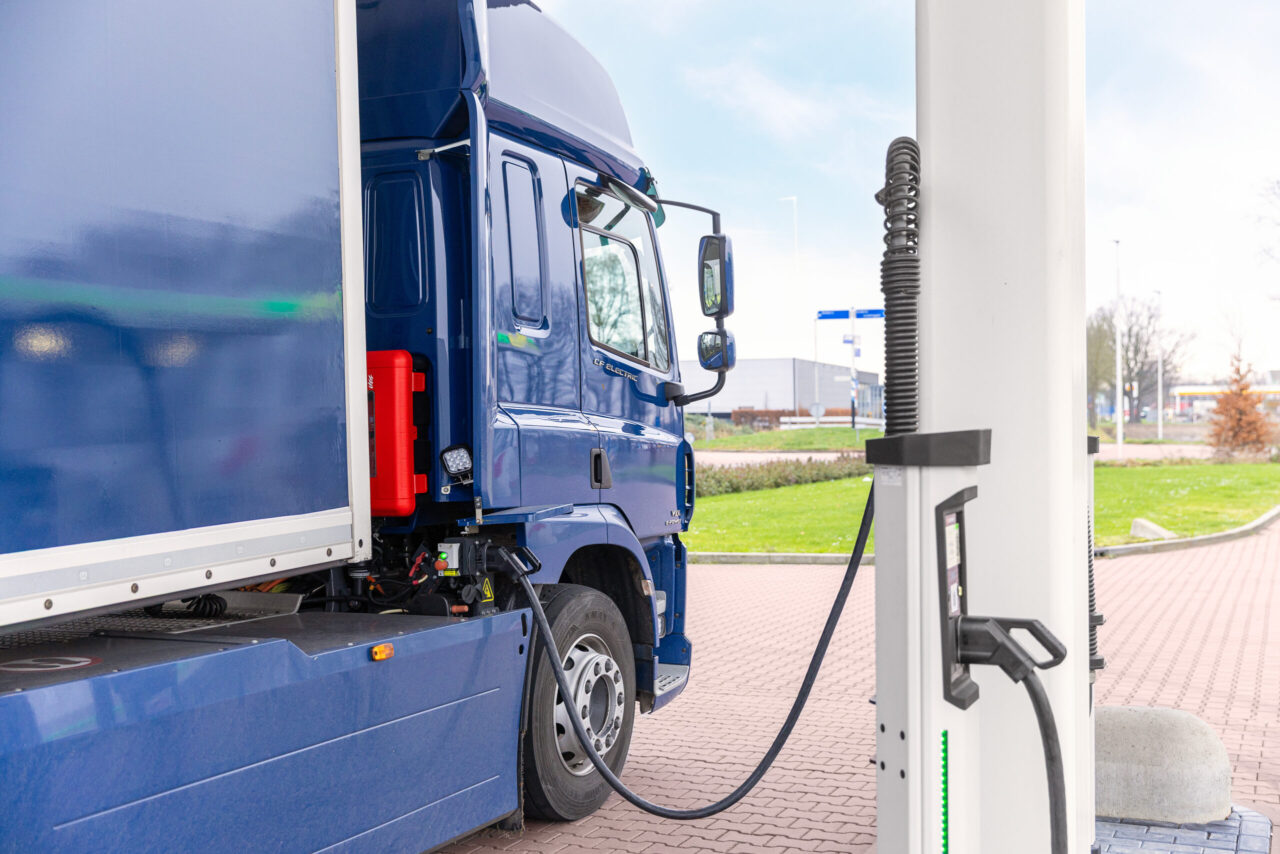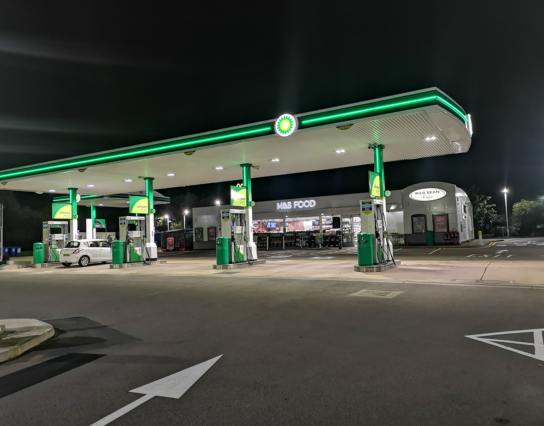As of December 2024, more than 1,360,000 fully electric cars* (EVs) were reported to be active on UK roads. Additionally, around 750,000 plug-in hybrid vehicles (PHEVs) contribute to a total of over 2.1 million plug-in cars.
The demand for accessible and efficient charging infrastructure is rapidly increasing, impacting residential areas, commercial spaces, workplaces, manufacturing operations and public hubs.
*Source: zapmap
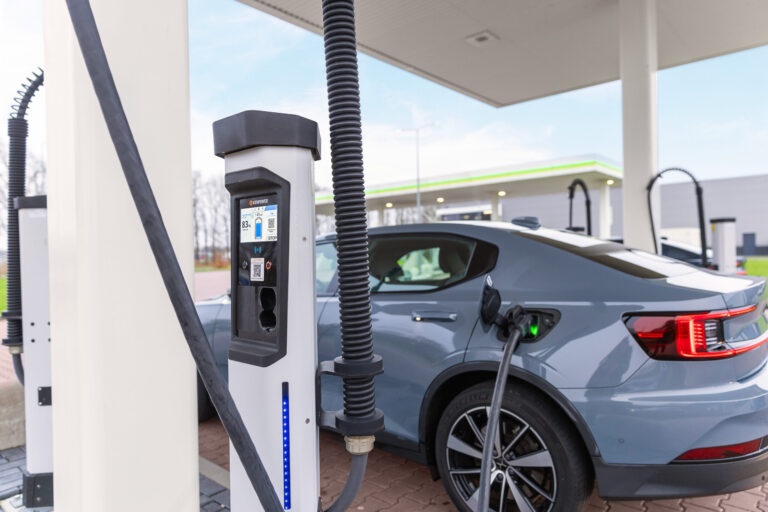
EV Charging Infrastructure Upsurge
The UK’s charging infrastructure is expanding swiftly to keep pace with rising demand. The Government and private sector investments have increased significantly in recent years, aiming to provide EV drivers with dependable and convenient charging options.
Furthermore, major oil companies (MOCs) are spearheading the development of their charging networks, ensuring easy access to charging stations in urban centres and along main commuter routes.
The growth in public charging stations is crucial in reducing ‘range anxiety,’ a common worry for potential EV buyers. With the growing availability of rapid and ultra-rapid chargers, drivers can now recharge their vehicles to 80% capacity in under 30 minutes, making EV travel more accessible and efficient.
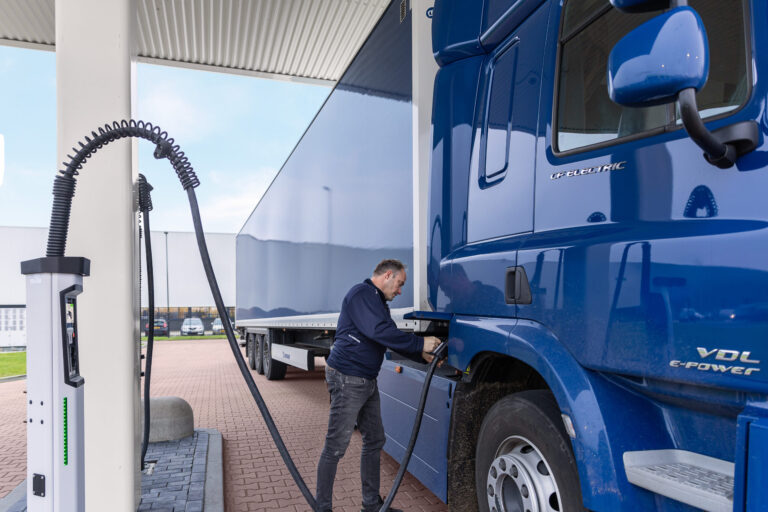
Fleet EV Adoption
Commercial sectors, especially those managing large fleets, are adopting EVs to lower expenses, decrease emissions and meet environmental regulations. To facilitate this transition, EV fleet operators are committing resources to workplace charging stations, frequently choosing fast and ultrafast charging options to ensure maximum operational efficiency. The Workplace Charging Scheme (WCS) offers grants to aid in setting up on-site charging stations, as it helps reduce the expenses associated with installing the necessary infrastructure. Additionally, government funding has been allocated to develop ultrafast charging networks along major travel routes, enabling company drivers to undertake long journeys without concerns about charging access.
New technologies in this field include integrated charging management systems, such as TSG’s ChargeLOG, which assist businesses in tracking energy consumption, scheduling charging times and optimising costs.
Environmental Considerations
Modern consumers are placing greater emphasis on the origins of their charging energy. There is a rising preference for charging solutions powered by renewable sources. This movement has spurred the creation of solar-powered EV charging stations, enabling users to utilise clean energy and further minimise their carbon emissions. This transition towards sustainability reflects a significant shift in consumer priorities, where reducing emissions and favouring renewable energy are valued as highly as convenience and affordability. As this trend progresses, the need for environmentally friendly charging options is expected to inspire continued innovation in the industry.

Challenges to Expanding EV Charging Infrastructure
The UK’s national grid is encountering significant obstacles in accommodating the swift rise in demand for EV charging. Ultrafast chargers and extensive commercial charging hubs require substantial power, which puts considerable pressure on the current electrical grid. This surge in demand has initiated conversations about necessary grid enhancements, energy storage solutions and smart charging technologies to manage peak-time loads. However, the high costs of these upgrades present a serious hurdle, particularly for rural areas and small enterprises.
Additionally, the ongoing maintenance and upgrading of existing charging stations can be both expensive and time-consuming. It is crucial for charging site owners to collaborate with reliable service and maintenance providers. As the number of EVs on the roads increases, ensuring that chargers are well-maintained and up-to-date with the latest standards will be essential for maintaining consumer trust in the network.
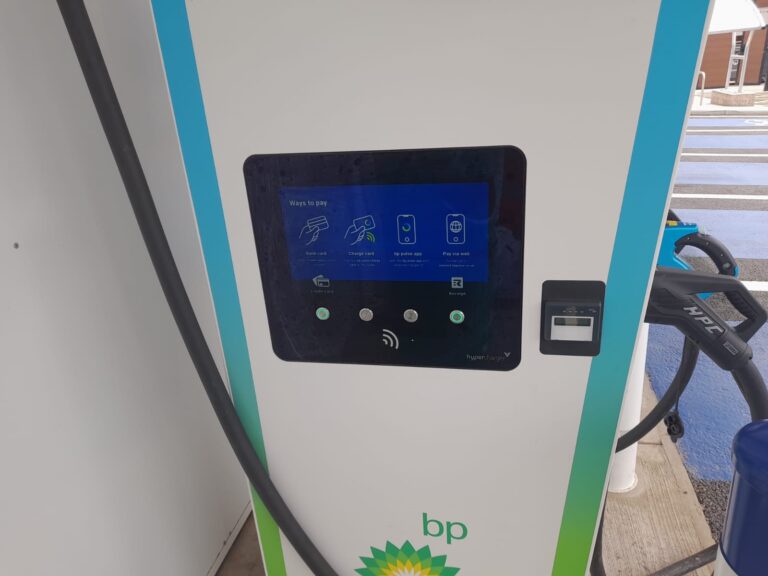
Regulatory Changes in EV Charging Standards
The UK government has introduced new regulations to enhance the user experience and ensure uniform standards throughout the charging network. Public charging stations must now provide contactless payment options, allowing all users to access them without needing specific apps or membership cards. This regulation is designed to simplify the charging process, making it as straightforward as regular refuelling.
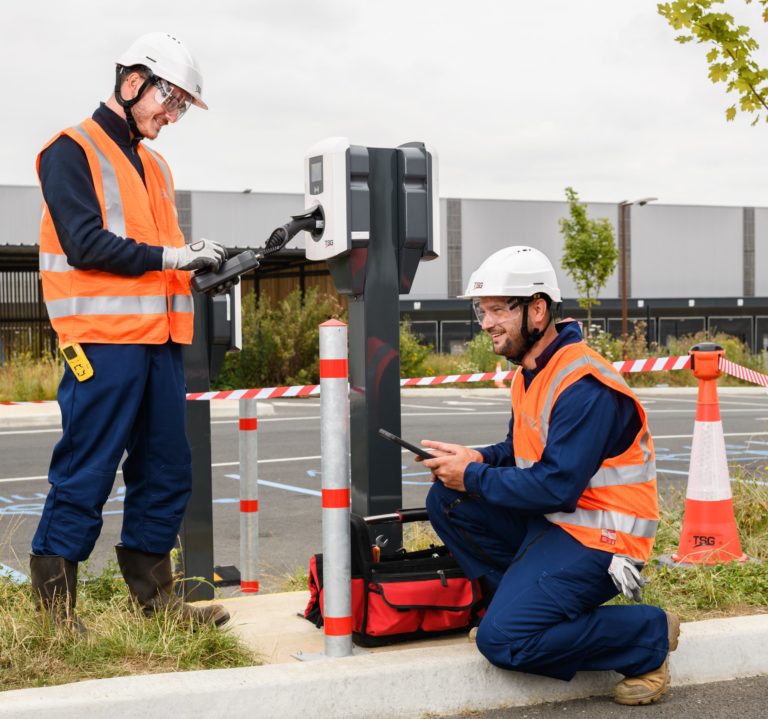
TSG is here to help
Charge Point Installation
TSG Charge assists businesses willing to transition from conventional fuels to more sustainable, eco-friendly alternatives. With over three decades of experience in the energy sector, TSG offers a comprehensive, turnkey EV charging solution, encompassing site surveys, design, consultancy and distribution network operator (DNO) connections.
TSG is committed to delivering an efficient first-class independent connection provider (ICP) service to all of its clients, by delivering trouble-free seamless connections to the grid.
TSG has become one of the UK’s top choices for engineering, procurement and construction (EPC) contracting, ensuring all projects are completed within set timelines and budgets.
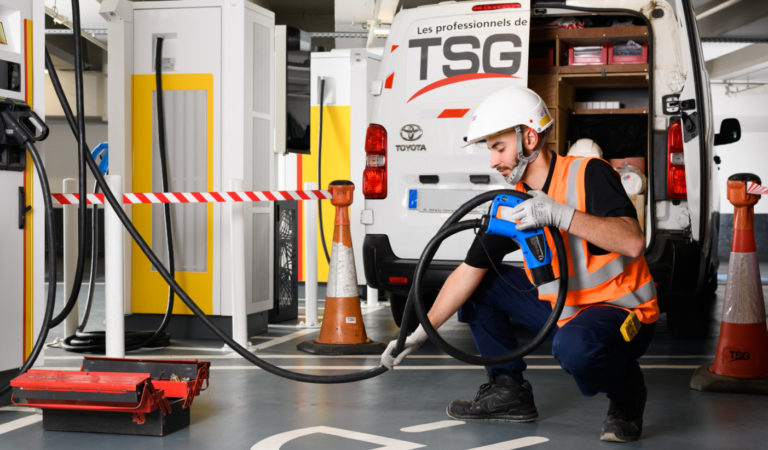
Charge Point Service and Maintenance
Effective preventative maintenance for EV charging stations is crucial for operational success. TSG has developed a tailored service and maintenance program to cover EV charging solutions and electrical infrastructure throughout the year.

Solar PV Installations
TSG works with customers to design solar systems that best fit their operations, adhering to local regulatory requirements. TSG will conduct thorough site surveys, audit reports and feasibility studies, providing detailed quotes, including both solar panels and battery storage systems, highlighting the potential return on investment (ROI) and profitability.
TSG manages every stage of the project, including civil works, infrastructure, cabling, connections and commissioning.
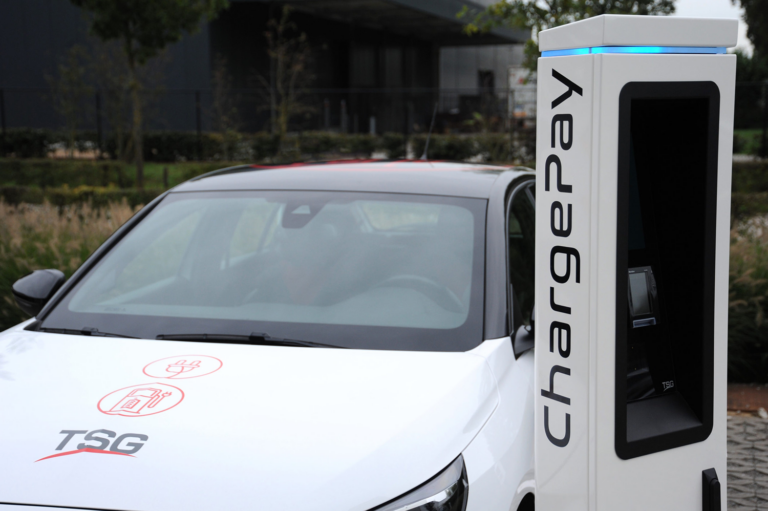
ChargePay Transforms EV Charge Payments
ChargePay is setting a new standard for payment solutions at public EV charging stations, delivering a smooth, transparent and user-friendly experience. Designed with both retailers and drivers in mind, ChargePay simplifies transactions, strengthens customer engagement and offers full visibility into every payment.
This next-generation terminal supports a wide range of payment options, including debit and credit cards, fuel cards and mobile wallets like Apple Pay, Google Pay, PayPal and QR code-based payments. It provides a clear breakdown of all charging-related costs, covering energy usage, parking, start-up fees, roaming charges and transaction costs, ensuring complete transparency for users.
Drivers can easily monitor their charging sessions remotely via QR code, while retailers benefit from tools that encourage repeat business, such as discount code receipts and a built-in barcode scanner for promotional offers.
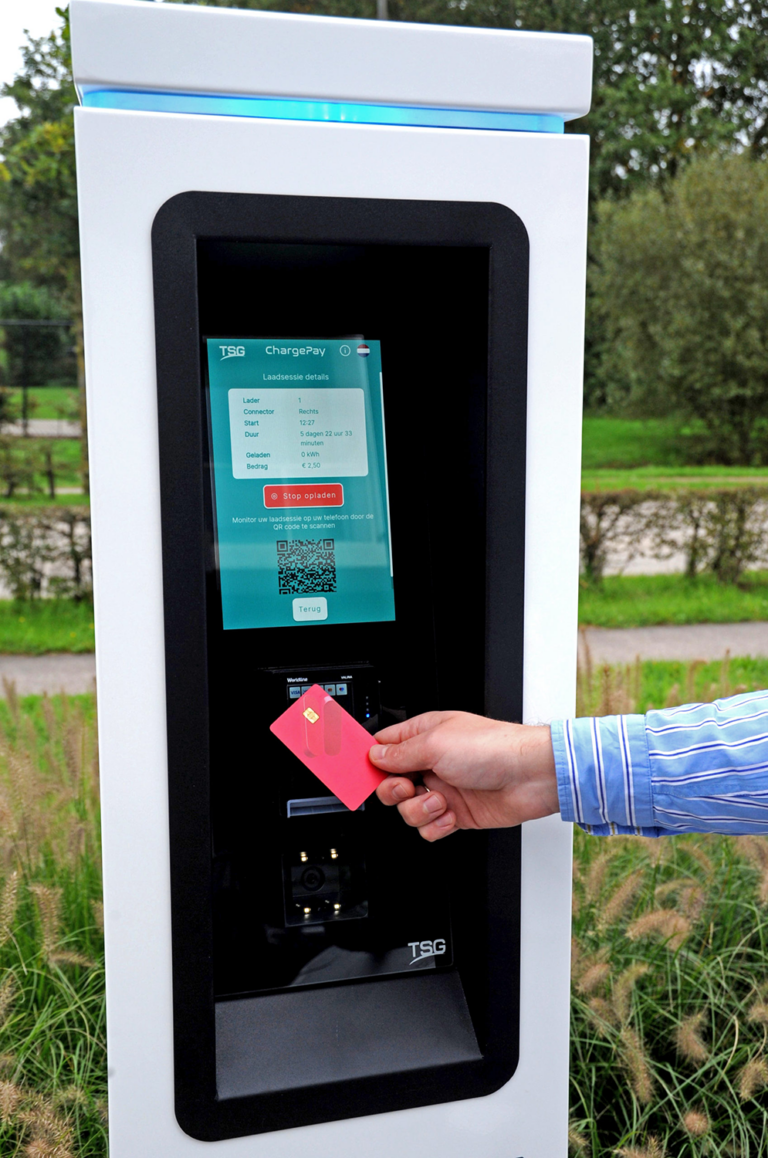
Key Features & Advantages
- Flexible payment options: Accepts cards, fuel cards and mobile payments
- Transparent pricing: Itemises all associated fees
- Remote session tracking: Users can follow their charging progress via QR code
- Loyalty incentives: Discount receipts help drive customer retention
- Universal integration: Compatible with all EV charging stations
- Mobile-friendly: Secure activation through a dedicated app
- Eco-conscious: Instant digital receipts reduce paper waste
- Centralised control: Manage and report via the dedicated portal
- Guaranteed payment: Secures a pre-set amount at session start to protect retailers
Author: Cheryl Ashton
